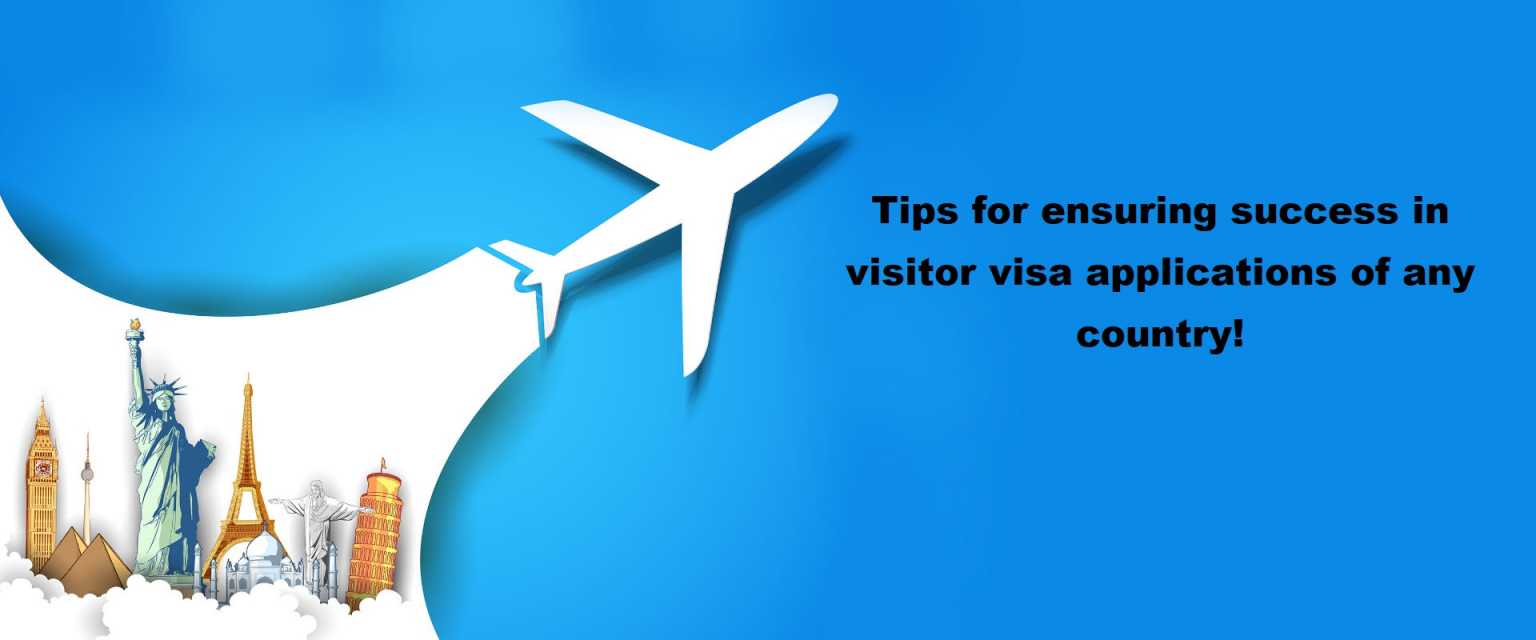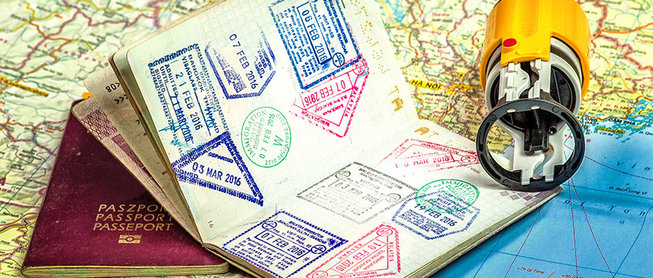Tips for ensuring success in visitor visa applications of any country!!
For most of us who travel abroad, applying for a visitor visa of the destination country is a time-consuming and cumbersome process. Additionally, there is always the apprehension that the application may be denied.
So how can one ensure that the visitor visa application is prepared well?
A visa officer has very limited time to review an application. Hence it is the applicant’s duty to duly complete the application form (providing all relevant details) and furnish all supporting documents (as requested) in such a manner that the visa officer’s job is made easy.
Many visitor visa applications are rejected as necessary, relevant and truthful information is not provided by the applicant in the application form and the supporting documents are not well organized.
Remember, the visa officer will first look at the visitor visa FORM and then look at the supporting documents to corroborate the information provided in the form.
The basic law and principle for all visitor visa applications remain the same irrespective of the country.
Here are a few tips for a successful visa application:
1. Visitor visa is also known as a non-immigrant visa. This visa is issued to a person so that he/she can travel to the county that issues the visa. For every visitor visa application, it is presumed that the applicant is a likely immigrant and may settle in the country that issues the visa. The onus is on the applicant to negate the presumption.
2. It is important to use (fill) only the official form available on the official website of the country or its official visa facility center such as VFS.
3. Make sure to read the instructions before filling the forms. Each question on the form must be answered truthfully. If any question is not applicable, please write ‘Not applicable’ (NA). Always give true and correct information. Do not write NA to avoid answering a question.
4. Keep your passport, birth certificate, and other personal documents ready and complete the forms by filling in the information as it appears in your passport/travel document and personal documents.
5. Always be careful regarding dates such as start time and finish time for education, job, and business. Do not fill in information without referring to the documents. If the information given in the application form is different from what is in the official documents, it can create a problem.
6. Always ensure that you have a definite purpose for traveling to or visiting a foreign country and that you possess the supporting documents for the same. For example, if you are traveling for pleasure/tourism, ensure that you have the air tickets and hotel booking. If attending a trade show, you must have the trade show registration, and if traveling for business, an invitation letter for business meetings, etc., is necessary.
7. You must have an itinerary, especially a definite date to return back to your home country. This can be shown by producing return flight tickets, holiday sanction letters from employers, etc.
8. The basic documents required to be produced include – a copy of the passport, a photograph, education and job, and/or business-related documents. It is also important to show that you are well established in your home country and are not likely to be an immigrant. This can be shown by including salary documents, job letters, bank balance, property documents, and all other types of assets. A CA’s certificate certifying your net assets is always a good document to produce. This is no perfect list of documents and it varies from application to application.
9. Always place documents in chronological order, the date by date from older ones to newer ones. If there are numerous documents, try to make an index and include a short covering letter.
10. Always keep a copy of the final application form and supporting documents submitted with you.
11. If applying for B1 / B2 (visitor visa) visa of the USA, ensure that you provide all the vital and correct information in the DS160 form. The visa officer will be making his decision based on the information provided in this DS 160 form in most cases. If you are running a big business, indicate this in the form. Do not wait for an interview to put forth the facts. The visa officer may have already made up his/her mind before the interview.
12. Correct and precise information pertaining to your education, job or business experience, assets, and reason for travel should all be mentioned in your visitor visa form. This is the key to a successful visitor visa application.
Legal disclaimer:
- (i) This blog/article does not give any legal advice and does not establish a client-lawyer relationship. Information provided is for the purpose of general information only.
- (ii) Only Indian lawyers can practice and advise on legal matters in India, including immigration and visa law. Foreign immigration lawyers cannot open offices and advice Indian citizens on immigration and visa matters.
- (iii) Always refer to official government websites or consult an immigration lawyer for the latest information as immigration and visa laws change quite frequently.
- (iv) Ajmera Law Group assists their client base by associating with law firms in respective jurisdictions.
- (v) Ajmera Law Group does not give franchise or agency of their legal services.
- (vi) We do not assist in job placement and/or finding a job in a foreign country. Please consult only licensed recruitment agencies.
- (vii) Any citizen or company, who is not an Indian lawyer, giving legal advice related to immigration and visa matters is in violation of the Indian Advocates Act 1961.




